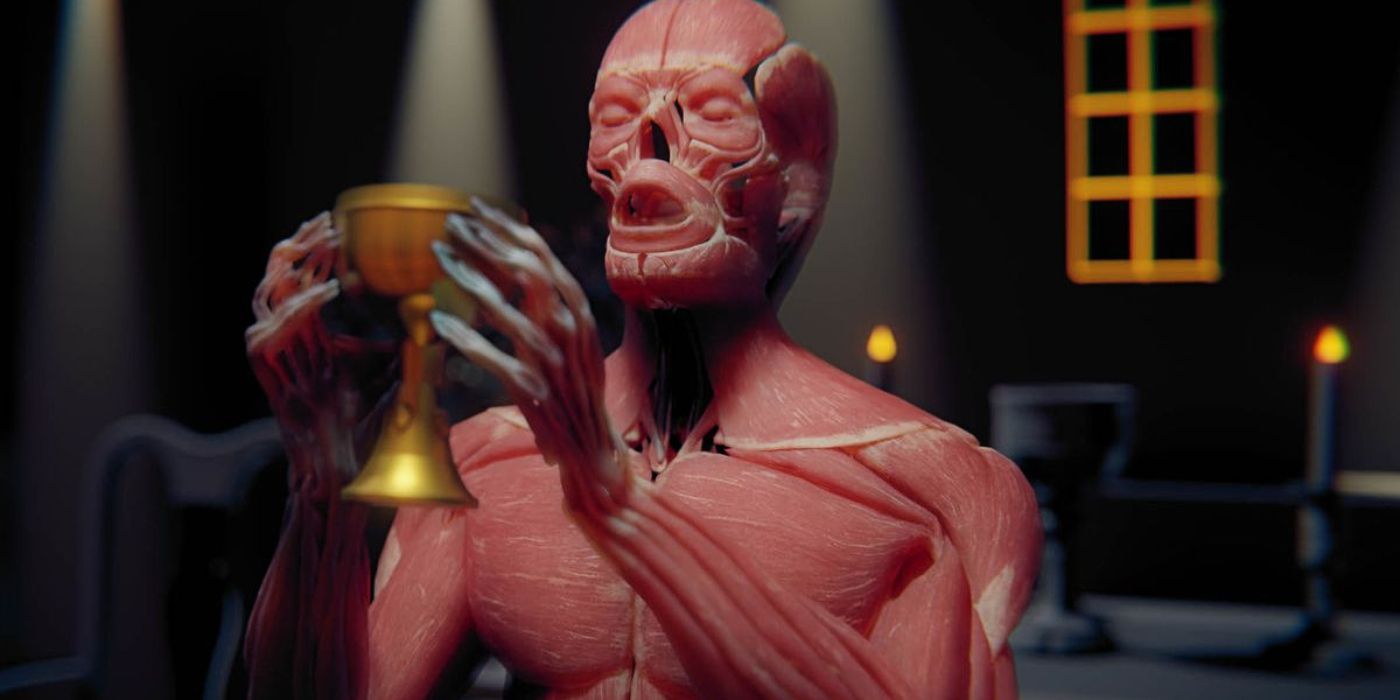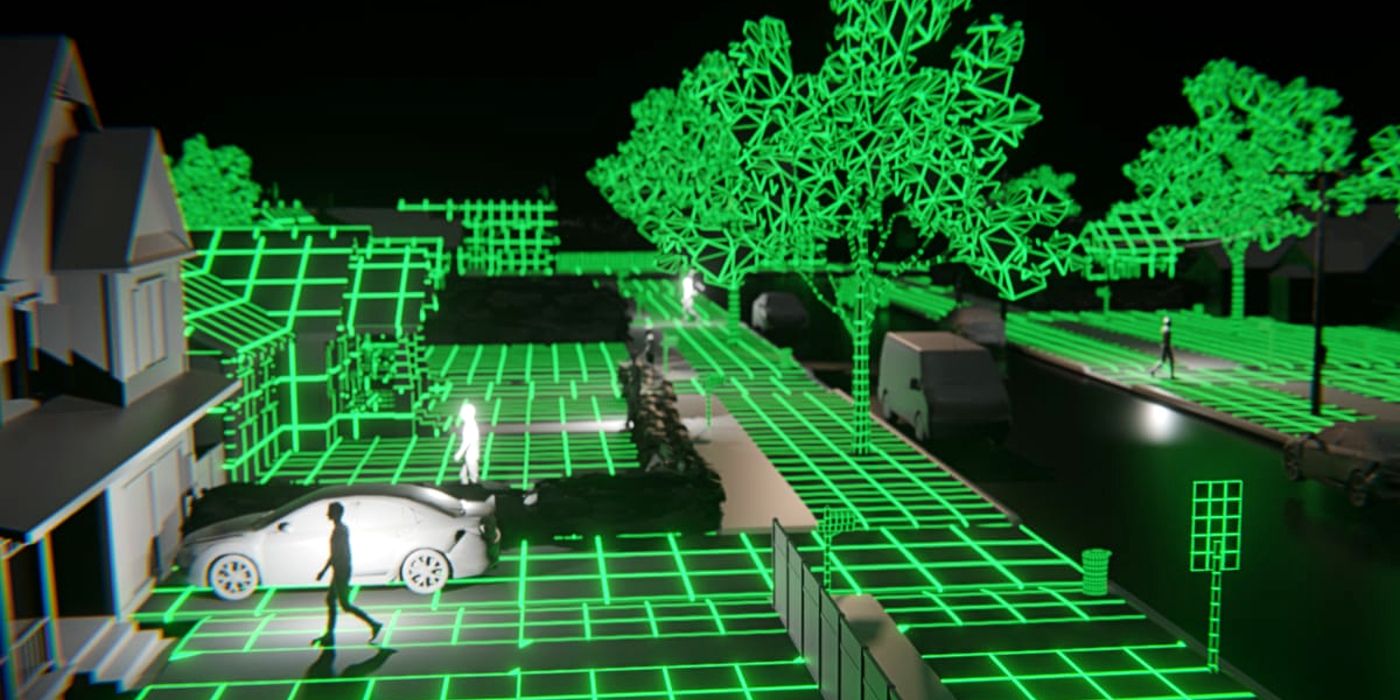In 1977, science fiction author Philip K. Dick delivered a speech at a sci-fi convention in Metz, France, titled If You Find This World Bad, You Should See Some of the Others. Perhaps one of the most fascinating speeches ever given about the core nature of reality, Dick went on to chronicle intensely personal experiences with possible visions from parallel lives that were rooted in the present, as opposed to the past. This is when Dick proposed the possibility that the world in which we live is, in fact, a computer simulation - one of many simulated realities within a vast ecosystem of worlds run by computer-generated code. This engrossing premise forms the core of A Glitch in the Matrix, the latest documentary by Rodney Ascher (Room 237) on the simulation hypothesis. Featuring a number of individuals who seem genuinely invested in the possibility that humans reside within a video game, A Glitch in the Matrix attempts to create a quirky, heavily animated philosophical piece that fails to add anything new to the conversation. Although based on an intriguing philosophical conundrum, A Glitch in the Matrix feels unreal on all fronts, poorly-researched, out of touch and vapid.
A Glitch in the Matrix is a smorgasbord of extended Zoom interviews, animated virtual-reality footage, and glimpses of internet clips wherein individuals such as Elon Musk and Neil deGrasse Tyson offer their thoughts on the simulation theory. There are moments of cogency when the documentary shifts to the theories regarding probability by Nick Bostrom, who popularized the simulation theory in a 2001 essay titled, “Are you living in a computer simulation?” It is interesting to note that Bostrom’s probabilistic analysis presented an innate dilemma in the field of philosophical ontology, forcing individuals to re-think the ways in which “reality” is defined and interpreted in everyday existence.
A Glitch in the Matrix hardly delves into the nuances of Bostrom’s theory, but manages to alienate audiences further from its basic tenets. From then on, the documentary touches upon the Mandela Effect, a prominent example of which can be presented in the form of memories of the Berenstain Bears spelled as Berenstein and the existence of a 1990s movie titled Shazaam starring comedian Sinbad as a genie. While the Mandela Effect is an interesting premise in its own right, the way in which A Glitch in the Matrix attempts to utilize it to justify the simulation theory comes off as superficial at best. Apart from the fact that the Mandela Effect has been widely debunked by experts and scientists alike, it is important to note that the existence of this phenomenon hinges upon false or altered memories shared among a collective conscious, shaped by a mix of cognitive factors that dictate the realities of a group of individuals.
After all, collectively misremembered pop culture incidents are hardly fool-proof evidence for the existence of parallel realities, a possibility that can be argued in much more convincing ways. Moreover, the Zoom interviews that are heavily featured throughout the documentary do little to add to its believability, obscured by animated cartoon character overlays that hide the individuals. While it can be argued that these individual experiences hold value in terms of the belief that the world is but a video game, wherein instances of déjà vu or temporal glitches function in favor of this hypothesis, the arguments lack conviction and appear as metaphysical epiphanies instead.
Can a sensation of depersonalization during a session inside a sensory deprivation tank be counted as evidence that our bodies are made of code? Or can an instance of overwhelming loneliness inside a vaulted church be deemed as a life-altering realization that nothing is real? These counter-questions are never raised by Ascher throughout the course of the overly-long documentary that struggles to grapple with poorly-fleshed abstractions.
All in all, A Glitch in the Matrix suffers from an overdose of make-believe, offering no real answers to the deeply disturbing philosophical quandaries that plague human existence. The overuse of low-budget animations and video game clips does not help make the case either, as it only serves to distort and cheapen the arguments presented. While A Glitch in the Matrix references Dick’s speech time and again, mentioning how his beliefs were reflected in the body of his work, there is no real attempt to dissect the science-fiction author’s religio-psychological revelations, or delve deeper into the mental landscapes that might attribute to the notions that shape us. Haphazard, inconsistent, and deeply insincere, A Glitch in the Matrix misses out on the little things that matter, which inevitably hampers the larger picture.
A Glitch in the Matrix is available in theatres and for streaming on digital in the U.S. on March 5, 2021, courtesy of Magnolia Pictures. The documentary is 108 minutes long and remains unrated as of now.
Let us know your thoughts on the film in the comments!



